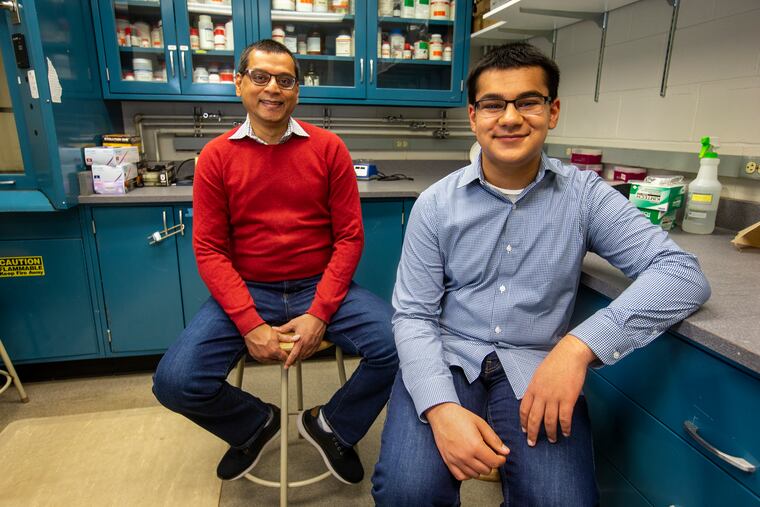Chester County father and son find nearly all grocery produce is uncontaminated by COVID-19
After quarantining together for 14 days in November, the pair visited 10 grocery stores in Philadelphia and neighboring counties.

In the early days of the pandemic, Vishal Shah painstakingly sprayed all of his family’s produce from the grocery store with a disinfectant before bringing it into their West Chester house to reduce the risk of contracting COVID-19.
His 13-year-old son, Anand, noticed the practice one afternoon and began questioning Shah, the interim vice provost and associate dean of the College of Sciences and Mathematics at West Chester University.
“I was curious to see if the virus was on the fruits and vegetables to begin with,” said Anand, a student at Charles F. Patton Middle School in Kennett Square.
The pair began investigating by taking a look at the guidance issued by the Centers for Disease Control and Prevention (CDC) and the World Health Organization. Both organizations stated that while it’s possible for COVID-19 to spread via touching and handling of food that has the virus on its surface, it is likely not the main way the virus is spread. The CDC has also said that washing fruits and vegetables does not guarantee the removal of the virus. But they wanted to confirm that theory in real life, Shah said.
“I just told Anand, ‘If you want to do a science project, this is a perfect one,’ ” he said.
After quarantining together for 14 days in November to prevent contamination of the produce that they would test, Shah and Anand visited 10 grocery stores in Philadelphia and neighboring counties, as well as New Jersey and Delaware, between the peak times of 10 a.m. and 6 p.m. All of the counties had reported high levels of community spread on the day they visited the stores. The pair selected a number of produce that people frequently touched, including apples, avocados, bananas, broccoli, carrots, potatoes and lettuce, then swabbed each piece five times.
“One of the first things I realized once I told my dad I wanted to do this project was that I had no means of testing for the virus on my own,” Anand said. “My dad’s lab was closed, so I contacted labs across the country and gave presentations that discussed what the project was.”
Eventually, Assured Bio Laboratories in Oak Ridge, Tenn., agreed to test the swabs for the presence of coronavirus at a discounted rate. Of the 140 pieces of produce tested from the stores, only one apple had traces of the virus on its surface. The Shahs concluded that their results supported the current CDC and WHO guidelines that contracting the virus by touching food surfaces is unlikely.
The study was published this week in ACS Food Science and Technology.
“This changed how we handle produce at our house and our relatives’ houses,” Anand said. “The biggest take-home message for me was that we can handle produce as we did before the pandemic, but we should wash our hands after handling produce.”